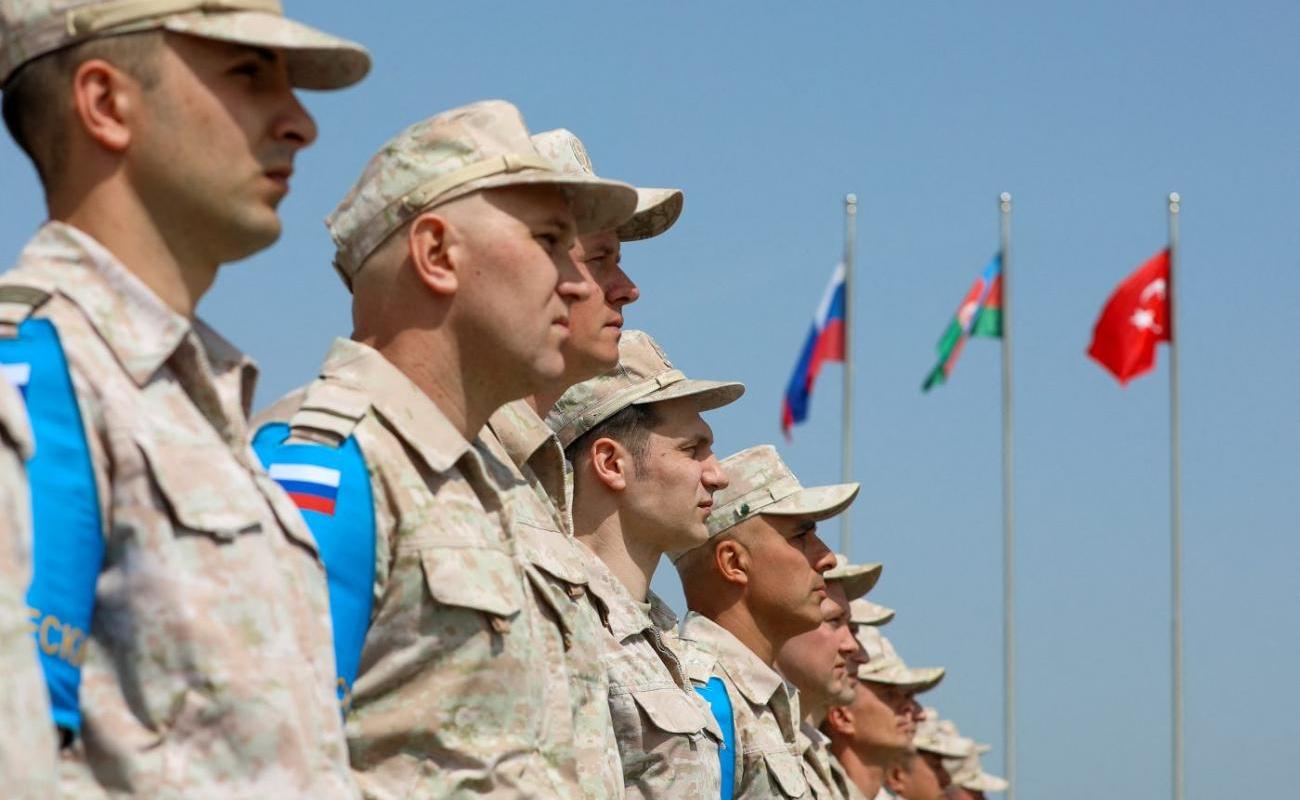Putin’s Perp Walk in the Caucasus

Russian power is no longer what it was in the South Caucasus, as smaller countries are demonstrating.
For two decades, Vladimir Putin enforced Russian dominance across the former Soviet space through a simple formula: swift punishment for defiance, lavish rewards for submission. Georgia learned this lesson in 2008 when Russian tanks rolled through its territory. The annexation of Crimea and devastation of Donbas in 2014 reinforced the message: Moscow dictates, others obey.
On July 1, the world received a stark reminder of how far gone that era is, as Azerbaijani police marched into the local offices of Russian state media. It arrested their leaders and other Russians, some badly beaten, were paraded for the cameras. The perp walk of Sputnik executives, broadcast gleefully on Azerbaijani television, marked something unprecedented: a former Soviet republic publicly humiliating Moscow without any apparent fear of consequences. Because there will be no consequences. Russia, the one-time regional hegemon, could only issue meek protests blaming Ukrainian provocateurs.
The journey from feared overlord to impotent bystander began, ironically, at what should have been Putin’s moment of maximum strength. On February 22, 2022, Russia and Azerbaijan signed a “declaration of allied interaction.” Two days later, Russian forces poured into Ukraine, expecting the kind of swift victory that had become Moscow’s calling card. Instead, they sank into a quagmire that drained Russia of much power and credibility.
Azerbaijan’s President Ilham Aliyev, a leader who had survived three decades through careful calibration in his dealings with regional powers, recognized the shift, gambling Russian peacekeepers meant to separate Azerbaijan and Armenia would retreat rather than risk confrontation. By September 2023, Azerbaijan had conquered the contested Nagorno-Karabakh region while Russian peacekeepers stood like bystanders at a mugging. Armenia, its appeals for Russian help ignored, suspended its membership in the Russian-led CSTO treaty alliance.
Moscow still courted energy-rich, strategically placed Azerbaijan, but this effort collapsed when Russian air defenses shot down Azerbaijan Airlines Flight 8243 on Christmas Day 2024, killing 38 after the stricken plane was refused permission to land in Southern Russia. The airliner was allegedly mistaken for a Ukrainian drone. Putin apologized but refused to accept responsibility.
Baku has since shut down a Russian cultural center, accusing it of espionage activities. A Russian MP in response called for Azeris in Russia to “be put through the legal filter. Illegal migration, tax evasion, corporate raids, and other ‘interesting’ activities will come to light soon enough.” Russia then launched a cyber-attack against Azerbaijani media, and Baku responded by ordering the closure of the local branch of the propaganda outlet, RT.
It was in this atmosphere that local authorities in Yekaterinberg rounded up dozens of Azeris on June 27, accusing them of a series of contract killings. Authorities brutalized the detainees, leading to the death of two widely liked cafe owners. Gruesome photos of the tortured survivors quickly emerged. Azerbaijani state media stoked outrage, publishing over 100 pieces and videos a day on the story, according to data provided by Omelas, where the author is Chief Technology Officer. On July 1, Azerbaijani struck back. Officials ransacked the Sputnik offices, arresting the executive director and editor-in-chief.
An insult of this magnitude would have been unimaginable just a few years later. Now, Russia is begging for cooler heads to prevail and blamed Ukraine for its troubles.
Russia has some reason to worry about warming relations between Azerbaijan and Ukraine. The Ukrainian foreign minister visited Azerbaijan in May, and Zelenskyy called Aliyev on July 1 to offer his condolences for the Azeris killed in Yekaterinburg. The two leaders promised to deepen cooperation.
Geography makes the humiliation complete. Putin launched his war to prevent NATO and EU expansion on Russia’s western border. Instead, he drove Finland and Sweden into the military alliance while demonstrating Russian military incompetence. Now his southern border crumbles as well. Azerbaijan openly courts Ukraine, while Armenia seeks Western partnerships. An alleged coup attempt in June involved figures with strong Russian links.
Power is as much about perception as reality. When Azerbaijan can arrest Russian state media leadership and parade them on television — when this generates not Russian tanks but Russian excuses — everyone watching understands the new reality.
Ben Dubow is the co-founder of Omelas, which builds multilingual, multidomain AI for intelligence research and reporting. His research has appeared in RealClearPolitics, Democracy Digest, Voice of America, and Radio Farda. He speaks Persian, Arabic, and Russian.
